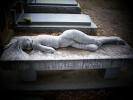By registering with our site you will have full instant access to:
268,000 posts on every subject imaginable contributed by 1000's of members worldwide.
25000 photos and videos mainly relating to the British Merchant Navy.
Members experienced in research to help you find out about friends and relatives who served.
The camaraderie of 1000's of ex Merchant Seamen who use the site for recreation & nostalgia.
Here we are all equal whether ex Deck Boy or Commodore of the Fleet.
A wealth of experience and expertise from all departments spanning 70+ years.
It is simple to register and membership is absolutely free.
N.B. If you are going to be requesting help from one of the forums with finding historical details of a relative
please include as much information as possible to help members assist you. We certainly need full names,
date and place of birth / death where possible plus any other details you have such as discharge book numbers etc.
Please post all questions onto the appropriate forum

-
28th August 2014, 12:55 PM
#21
 Re: Ear ear
Re: Ear ear
Looking at the History ( Wikipedia i'm afraid ) during World War I the code was severely tested, and it was found that "when coding signals, word by word, the occasions upon which signaling failed were more numerous than those when the result was successful."
The International Radiotelegraph Conference at Washington in 1927 considered proposals for a new revision of the Code, including preparation in seven languages: English, French, Italian, German, Japanese, Spanish and in Norwegian. This new edition was completed in 1930 and was adopted by the International Radiotelegraph Conference held in Madrid in 1932. The Madrid Conference also set up a standing committee for continual revision of the code. The new version introduced vocabulary for aviation and a complete medical section with the assistance and by the advice of the Office International d'Hygiène Publique. A certain number of signals were also inserted for communications between vessels and shipowners, agents, repair yards, and other maritime stakeholders.
After World War II, The Administrative Radio Conference of the International Telecommunication Union suggested in 1947 that the International Code of Signals should fall within the competence of the Inter-Governmental Maritime Consultative Organization (IMCO), which became the IMO. In January 1959, the First Assembly of IMCO decided that the organization should assume all the functions then being performed by the Standing Committee of the International Code of Signals.
The Second Assembly of IMCO 1961 endorsed plans for a comprehensive review of the International Code of Signals to meet the needs of mariners. The revisions were prepared in the previous seven languages, plus Russian and Greek.
The code was revised in 1964 taking into account recommendations from the 1960 Conference on Safety of Life at Sea (SOLAS) and the 1959 Administrative Radio Conference. Changes included a shift in focus from general communications to safety of navigation, abandonment of the "vocabulary" method of spelling out messages word by word, adaptation to all forms of communication, and elimination of the separate radiotelegraph and geographical sections; it was adopted in 1965. The 1969 English-language version of the code (United States edition, revised 2003) is available online through the National Geospatial-Intelligence Agency (NGA, formerly the National Imagery and Mapping Agency) as Publication 102.
The International Code of Signals is currently maintained by the International Maritime Organization, which published a new print edition in 2005. So it looks like the last fiddling about at the IMO was by the Yanks
Rob Page R855150 - British & Commonwealth Shipping ( 1965 - 1973 ) Gulf Oil -( 1973 - 1975 ) Sealink ( 1975 - 1986 ) 

-
Post Thanks / Like
-
29th August 2014, 06:26 AM
#22
 Re: Ear ear
Re: Ear ear

Originally Posted by
robpage

Not on UCL mate, particularly the "siera"!!!!!!!!!!!!!!!!!!!!!!!
Last edited by happy daze john in oz; 29th August 2014 at 06:28 AM.


Happy daze John in Oz.
Life is too short to blend in.
John Strange R737787
World Traveller

Tags for this Thread
 Posting Permissions
Posting Permissions
- You may not post new threads
- You may not post replies
- You may not post attachments
- You may not edit your posts
-
Forum Rules
